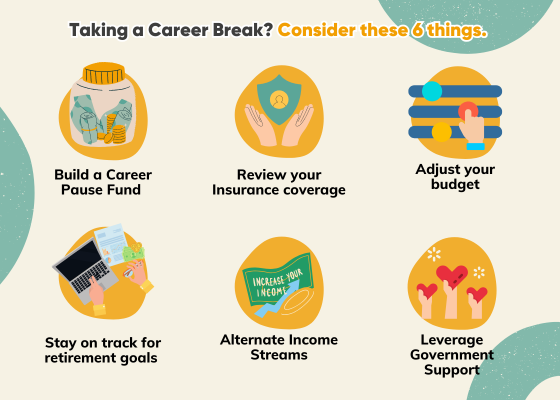Note: It was announced in November 2023 that MoneyOwl will be acquired by Temasek Trust to serve communities under a re-purposed model, and will move away from direct sale of financial products. The article is retained with original information relevant as at the date of the article only, and any mention of products or promotions is retained for reference purposes only.
______________
If you’re still unconvinced by the benefits of buying term insurance, then this article might change your mind.
Since 2003, we have been advocating the use of term insurance. While many Singaporeans appreciated our beliefs, the insurance and financial planning industry fought it. We stood out like a sore thumb and were a lone voice. Thus, I felt very encouraged at NTUC Income’s 40th anniversary dinner when Senior Minister Goh Chok Tong supported the use of term insurance and even asked insurers to put more emphasis on it.
So, why our belief in using term insurances?
Some of the biggest risks in life include loss of income due to death, disability and a medical crisis. When we retire and no longer earn and need an income, we no longer face these risks and as such no longer need insurance protection for it. As such, buying permanent cover using expensive whole life insurance means paying for something that you don’t need and likely can’t afford. So Singaporeans end up being grossly under-covered.
One of the main objections given to people against buying term insurance is that when the insurance expires, you get nothing back. While this is true, it is only half a truth. This is because; this is the same for whole life plans too. For every dollar you pay as premium for your whole life plans, a portion of it goes into paying the mortality charge that provides you the cover you need. The rest of it is invested into the insurance company’s life fund. The mortality charge portion is never returned back to you. The only reason why you get money back from a whole life plan is because you gave the insurance companies extra money to invest. When you buy a term plan, you are effectively paying only for the mortality charge i.e you are just buying pure protection.
For the longest time, we have been told that we can use insurance for protection as well as savings towards our financial goals. The irony of this is that the returns of insurance is insufficient to help us reach our goals and whole life insurance is so expensive that it won’t protect us fully as well. So buying whole life insurance achieves neither goal. When we buy term insurance, we can at least achieve the protection goal, which is the priority and foundation to all good financial plans. Then, with proper advice and coaching, we can use the savings from not buying a whole life plan to invest and reach our goals. We now have a chance to achieve both goals. Even if you are very conservative, there are many other optional instruments; there is no need to use insurance. Insurance is for protection only – the word “insurance” suggests so.
If the advantages of term plans are so clear, why are they not frequently bought? There are many reasons, but editorial space only allows me to highlight the two main ones. I call them the two “lacks” of salespeople. The first is the lack of knowledge and second, lack of motivation. When I started out in this profession about 14 years ago, I spent a short time with an insurance company. I can count the number of times we were trained in the use of term insurance. The emphasis was always on “with-profits” products. But I think the biggest hindrance to term plans is the salespeople’s lack of motivation. It is obvious that the commissions’ payout for a whole life plan is a lot more than a term plan. In this commissions-hungry industry where salespeople are rewarded for sales more than advice, whole life plans will always be sold. That is why I avoided the use of “advisers” throughout this writing and used “salespeople” instead. This is not to say there aren’t good salespeople or even advisers out there. Unfortunately, they are in the minority. I know of some who will insist on recommending term insurance despite earning less. To these people, I salute them. But the fact still remains that for the majority, compensation drives behaviour. I speak at seminars to thousands of people each year, and each time when I ask why they don’t buy term insurance, most tell me that their agents or advisers would not sell it to them. Even if they did, they would package some whole life plans together with it, on the basis of “playing safe” just in case they need it for their entire life.
About two months ago, I asked an actuary (someone who designs insurance products) who has left an insurance company what he buys for himself. Like many ex-actuaries I have spoken to, he said he would never buy an investment-linked plan or a whole life plan as it is just too expensive and doesn’t make sense. He has protected his family with term plans. So, if the chef doesn’t eat his own cooking, why should we?
SM Goh pointed out that it is the advisers that wield the greatest influence on the type of plan a person purchases. I agree. We have been advocating term insurance for the past seven years and not very much has changed. I believe real change will come when Singaporeans understand what insurance is for and begin to insist on term insurance. Salespeople will then have no choice but to sell it. It is a shame that clients have to tell this industry the right thing to do. But in this case of term insurance, it is the only way things will change. I look forward to the day when we have an advisory industry and not a sales one.
Christopher Tan is the CEO of Providend, a fee-only retirement financial adviser. The edited copy first appeared in The Sunday Times (Invest) on 7 November 2010 titled “For Good Terms, Buy Term Insurance” and was updated on the website in July 2021.
Announcement: With effect from 1 June 2022, MoneyOwl is a 100% NTUC Enterprise (NE)-owned company.




